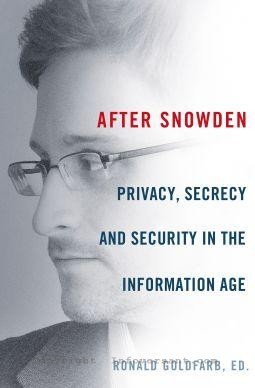What comes first? Your privacy or safety? I think this too, like everything else, is contextual. Place a person in an environment where people are attacked and dying each day, and it is more likely that this person will choose safety and give almost anything required to get safety over privacy. Similarly, a person who does not see any immediate threat to life will prefer to have her privacy respected by the authorities. I am not saying that expecting privacy of our information and communication is wrong. But as the author says in the Introduction, to find a needle in a haystack, the haystack needs to be sifted and therefore, collected.
Then there is the act of making important documents public. If we look at these two acts in isolation, then both of these acts are, perhaps, equally wrong. It is wrong of the government to infringe upon people’s rights. Similarly, it is wrong of a government employee or contractor to make important documents public, which could endanger long-term strategies and other people’s lives.
After Snowden: Privacy, Secrecy, and Security in the Information Age
Pages: 320 pages Publisher: Thomas Dunne Books (May 19, 2015) ISBN: 125006760X, 978-1250067609
After Snowden raises these and many other legal and moral questions that each one of us needs to ponder on.
The collection of essays covers the long history of definition of “Classified Documents”. In Judging State Secrets: Who Decides – And How? Barry Siegel, discusses various court and government lawyers’ arguments on what makes a piece of information a secret to be protected.
Many of you may not agree with my opening argument. But then, we readily share our intimate thoughts and report our actions everyday on various social networks. These data are used by the social networks to make money and in turn sell you stuff based on your behavior. But we agree to this violation of private information. Information that is consumed and used by advertisers to manipulate us into buying their products and services. Then why is it so wrong if the government uses much less information (gathers only metadata) to protect its citizens? Is it wrong because you are not aware of what the government is doing? Are the tech companies telling you what they are doing with your data? Do you know how the metadata these companies have access to used by buyers over which you have no control? Buyers who could be sitting anywhere in the world.
Snowden revelations have shown that the government did not disclose that it was monitoring information and officials lied when asked a direct question. But the revelations have not yet shown that the agencies misused this information or somehow used it to manipulate the individuals.
Yes. Transparency is important and it is citizens’ right to know what the government is doing and what it is spending their money on. Snowden leaks have managed to bring about some change in this. Thomas Blanton covers the century old secrecy debate and how these leaks have brought that debate again into focus in Secrecy, Surveillance, and the Snowden Effect.
Right or wrong, Snowden leaks ensured that new checks and balances be brought into the whole system and that only few at the top of these agencies do not get a free run on deciding what is off bounds and what is justified. It is the responsibility of the elected representatives that the actions of these agencies are monitored and controlled to protect both: citizens and their rights.
